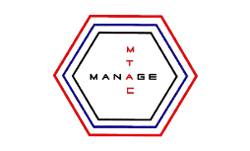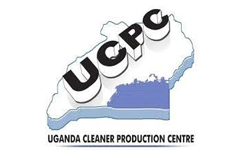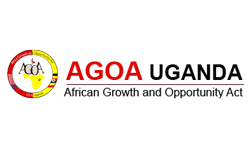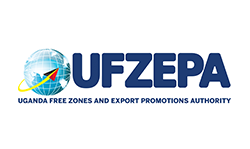The 7th Annual Trade, Industry and Cooperatives Sector Review Conference
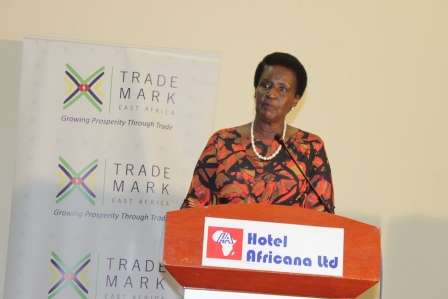
Theme:
“Micro, Small and Medium Enterprises (MSMEs) the Driving Force to Middle Income Status”
Introduction
Strong coordination in the development and implementation of Government policies as well as interventions in most sectors including that of Trade, Industry and Cooperatives is critical to achieving the intended Government goals.
This is particularly so in Uganda with strategies to develop and nurture private sector competitiveness, and to support the productive sectors of the economy to trade in domestic, regional and international markets. The ultimate objective of the Trade, Industry and Cooperatives Sector is to significantly contribute to wealth and employment creation as well as to transform Uganda from a poor into a modern and prosperous society.
Background
The Trade, Industry and Cooperatives Sector receives policy oversight and guidance from the Ministry of Trade, Industry and Cooperatives. The mandate of the Ministry as derived from the Constitution of the Republic of Uganda (1995 – Article 189, Sixth Schedule Sections 11, 12, 13, 20, 23, 25 and 29) is: “To formulate, review and support policies, strategies, plans and programs that promote and ensure expansion and diversification of trade, cooperatives, environmentally sustainable industrialization, appropriate technology development and transfer to generate wealth for poverty eradication and benefit the country socially and economically.”
While the primary responsibility of developing trade, industry and cooperatives sector policies lies with the lead Ministry in the Sector, inputs from institutions and actors from within and outside the Sector is essential for any successful implementation and achievement of the Sector’s policy and development objectives. That is why in executing its mandate the Ministry also supervises seven (7) of such Agencies namely; the Uganda Development Corporation (UDC), the Uganda Industrial Research Institute (UIRI), the Uganda National Bureau of Standards (UNBS), the Uganda Export Promotion Board (UEPB), the Uganda Warehouse Receipt System Authority (UWRSA), the Management Training and Advisory Centre (MTAC) and the AGOA Secretariat (AGOA-Sec).
In pursuance of its objectives, the Sector collaborates with other key stakeholders in other Government Bodies, the Private Sector, Civil Society and Development Partner Group among others. The Sector’s Development Partner Group in the recent past has consisted of the Delegation of the European Union, the Enhanced Integrated Framework (EIF), Swedish International Development Agency, United Nations Industrial Development Organisation, Korean International Development Agency, Japanese International Co-operation Agency and the Trade Mark East Africa.
The Review Conference
It is against the above background that the Ministry of Trade, Industry and Cooperatives is organizing the 7th Annual Trade, Industry and Cooperatives Sector Review Conference for the relevant Sectors, including the Micro, Small and Medium Enterprises.
The Ministry has been holding Sector reviews since 2005 with the most recent being the 6thAnnual Joint Trade, Industry and Cooperatives Sector Review Conference that was held at Imperial Royale Hotel on 17th September 2015. At this conference, several recommendations were made within the Sector. Therefore, this review will assess the progress made in implementing recommendations of the previous Conference and commitments in the Sectoral Policies. The Conference will also chart the way forward and future prospects on promoting Micro, Small and Medium Enterprises (MSMEs) as a Driving Force towards Middle Income Status.
Objectives of the Conference
The main objective of the conference is to conduct a review of the performance of the Sector since the 6th Annual Joint Sector Review Conference of 17th September 2015. This will also provide an opportunity to establish feasible interventions and strategies to boost the Sector in taking into consideration the recent developments within the region and our economy.
The specific objectives of the Sector Review Conference will be to:
1) Appraise the stakeholders on the current Government programmes related to the Sector and Highlights of Past Performance for Financial Year 2015/16;
2) Highlight the Sector performance targets and outputs for Financial Year 2016/17;
3) Appraise the stakeholders on new developments in the Policy, Strategic and Regulatory environment of the Sector, such as:
a) Trade, Industry and Cooperatives Sector Development Plan 2015/16 – 2019/20;
b) Uganda Micro, Small and Medium Enterprise (MSME) Policy;
c) Buy Uganda Build Uganda Implementation Strategy; and,
d) National Leather and Leather Products Policy.
4) Discuss issues affecting the implementation of Sector programmes; and;
5) Identify and generate consensus on priority interventions that the Sector should consider for incorporation in the Planning and Budgeting Process for Financial Year 2017/18.
Participants
A cross-section of about 150 participants will be invited to take part in this Sector Review Conference from the Public Sector, Private Sector, Civil Society, Development Partners, Academia and the Media.
Expected Deliverables from the Conference
The expected outputs of the Review Conference will be;
a) A consensus on institutional collaboration, synergies and roles of all stakeholders in implementing the priorities for promoting Micro, Small and Medium Enterprises (MSMEs) as a Driving Force towards Middle Income Status; and
b) A Sector Review Report with policy recommendations, agreed actions and undertakings for consideration in the Budgeting Cycle of Government’s coming Financial Year 2017/18.
Conclusion
The mandate of the Ministry responsible for the Trade, Industry and Cooperatives Sector is to formulate and support strategies, plans and programmes that promote and ensure the expansion, diversification and development of the Sector. However, interventions necessary to achieve this mandate are diverse, complex and go beyond the confines of the Ministry’s capacity. This will therefore require involvement of all stakeholders to enable the Ministry achieve its mandate,


